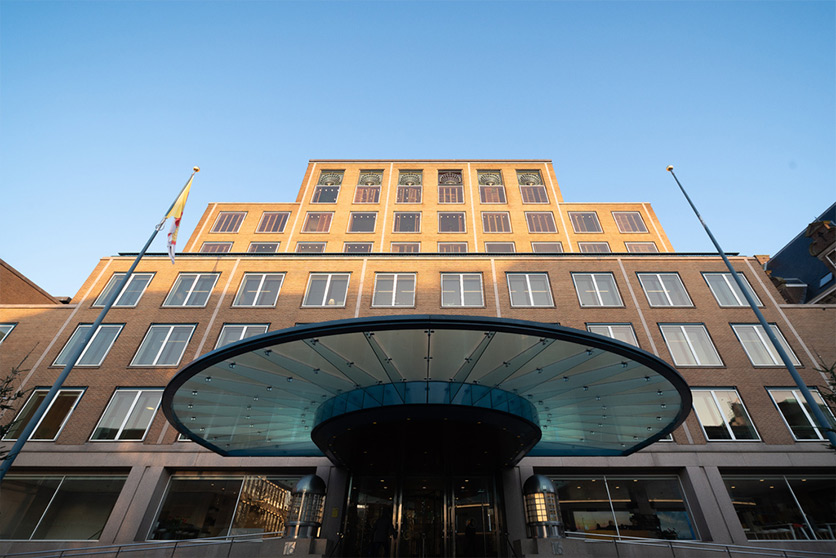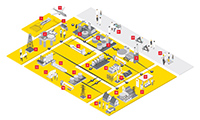Corporate segment

Corporate segment
The Corporate segment covers the non-operating activities supporting Shell. It comprises Shell’s holdings and treasury organisation, its self-insurance activities and its headquarters and central functions. All finance expense and income as well as related taxes are included in the Corporate segment earnings rather than in the earnings of the business segments.
Share buybacks
bought back in 2018 and 2019
Credit rating
S&P long-term rating
Business service centres
with more than 19,000 employees
Treasury
The holdings and treasury organisation manages many of the Corporate entities and is the point of contact between Shell and external capital markets. Its daily operations include liquidity and foreign exchange management, advising and financing subsidiaries and joint ventures, investing surplus funds and managing Shell’s bank account infrastructure.
The treasury organisation’s activities also include maintaining Shell’s credit ratings and debt platforms, issuing short- and long-term capital market instruments and executing the Royal Dutch Shell dividend, scrip and share buyback programmes as applicable.
Risk and insurance
We use robust methodologies and processes to assess, mitigate and manage risk in order to drive down our total cost. This includes the valuation of risk so that it can be properly taken into account in decision-making. Risk and insurance also require the causes of losses to be analysed and understood so that future losses can be reduced. To support this, our insurable risks are mainly aggregated and retained within insurance subsidiaries, which means that we self-insure most of our risk exposure.
The insurance subsidiaries form a key part of our approach to risk management. They provide insurance coverage to Shell entities, usually limited to Shell’s percentage interest in the relevant entity. We seek to ensure that the capital held to support the self-insurance obligations is at a level at least equivalent to what would be held in the third-party insurance market.
Headquarters and central functions
Headquarters and central functions provide business support in the areas of communications, finance, health, human resources, information technology, legal services, real estate and security. They also provide support for the shareholder-related activities of the Company. The central functions are supported by business service centres located around the world, which process transactions, manage data and produce statutory returns, among other services. The majority of the costs related to headquarters and central functions are recovered from the business segments. Those costs that are not recovered are retained in Corporate.
For further information on the Corporate segment, please see the 2019 Annual Report.

Shell's corporate headquarters, The Hague
 Our businesses and organisation
Our businesses and organisation
 Overall highlights in 2019
Overall highlights in 2019
 Projects & Technology overview
Projects & Technology overview
 Financial data
Financial data
